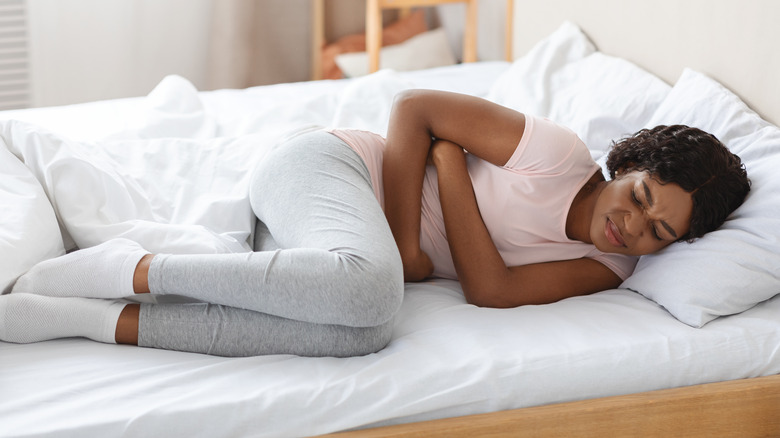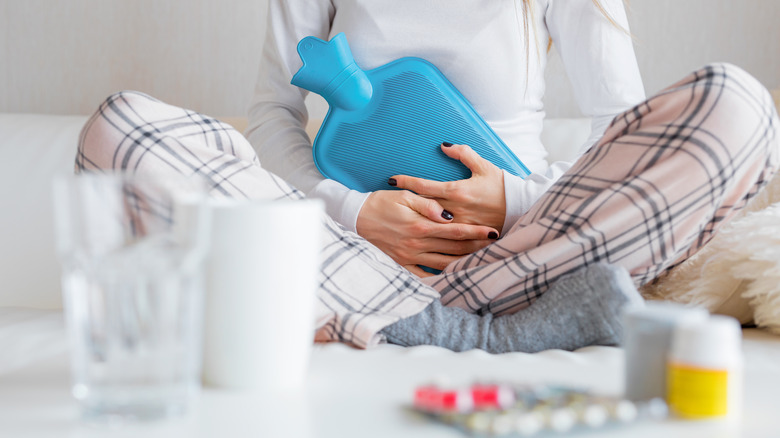What Really Causes Lower Back Pain During Your Period
Lower back pain is one of many struggles that can accompany periods, according to Healthline. It is a symptom of dysmenorrhea, or painful periods, notes the American College of Obstetricians and Gynecologists (ACOG). Dysmenorrhea can range from mild to severe, often lasts for one or two days, and affects more than half of menstruating women. It comes in two forms: primary and secondary.
During primary dysmenorrhea, prostaglandins cause the uterus to contract, creating pain that can be felt in the stomach and, for some people, the lower back. A 2016 study published in the Journal of Women's Health found that high inflammation increases a woman's likelihood of experiencing pain during her period.
Secondary dysmenorrhea typically involves an issue with the reproductive organs. The pain associated with this type tends to be more intense and may last longer than the period itself, notes the ACOG. A common cause of secondary dysmenorrhea that may trigger severe back pain is endometriosis (per Healthline).
Remedies for lower back pain
There are several ways to treat lower back pain both naturally and with medicine. If you're looking for home remedies, try applying heat to your back for 10 to 15 minutes (via Healthily). Do it through clothing to avoid burning your skin. While it may seem obvious, a good massage can also do wonders for your back. Try massaging yourself in a circular motion, or recruit a family member for help — the goal is to relax. If massages aren't your jam, consider other relaxing activities like meditation or baths.
Exercising may also be your ticket as it increases endorphins, and helps alleviates pain and cramps, suggests The Healthy. While intense workouts may seem impossible to do, try gentle exercises like walking, yoga, or stretching (per Healthline). You should also ditch caffeine, alcohol, and smoking during your period.
Hormonal birth control is also effective in reducing period pain (via Healthline). Alternatively, over-the-counter pain medication like ibuprofen and aspirin can help. In more severe cases like endometriosis, surgery may be needed.
If the pain doesn't subside, it's always best to consult your physician.


